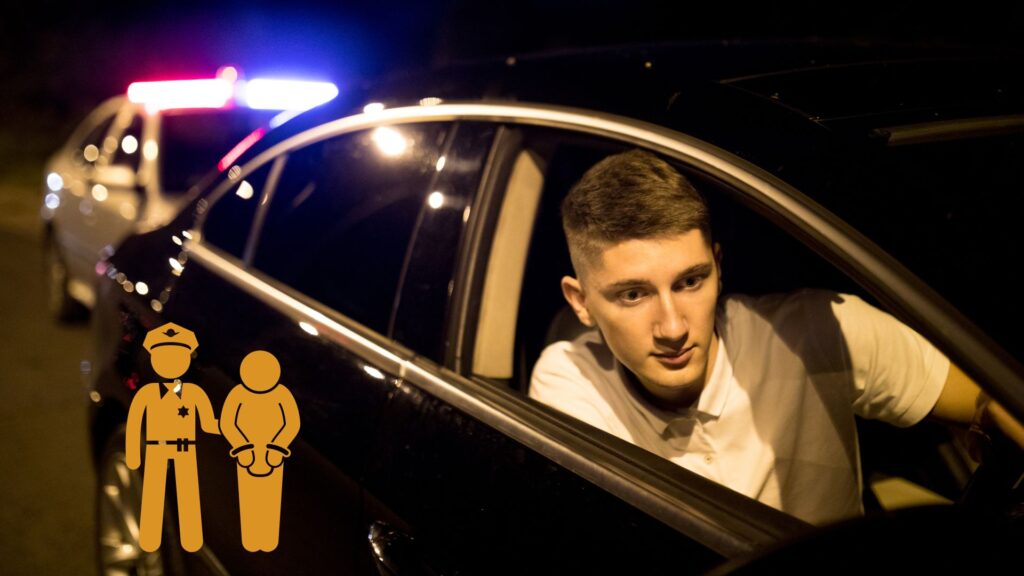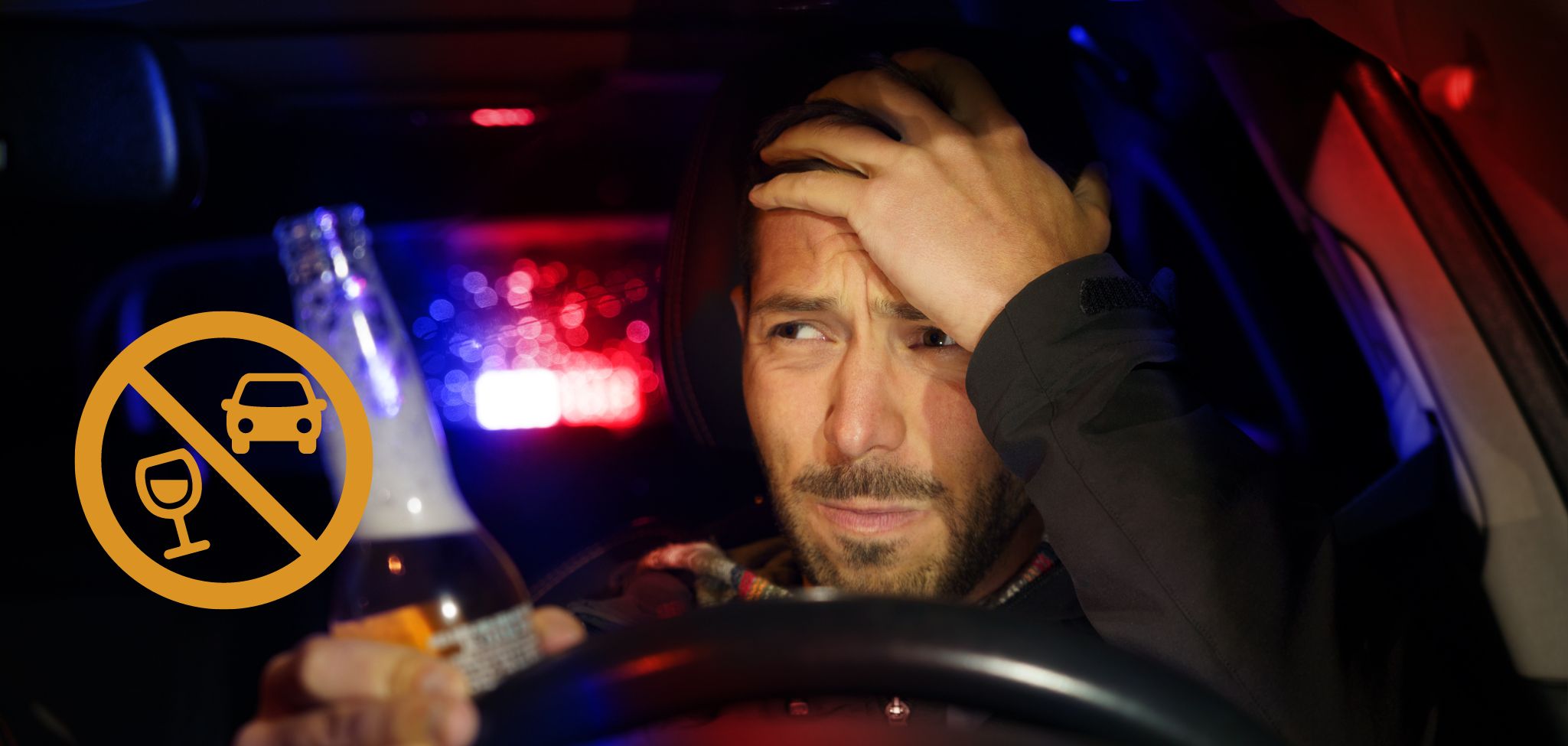
Have you been caught driving while suspended? Traffic offences of any nature are considered a criminal act — however, repeat offending is a serious matter. Committing any driving offence while having had your licence suspended demonstrates to the court that you have not learn from your past actions or mistakes.
What is my first step?
If you have been caught, your immediate first step is to seek legal advice from a criminal lawyer. Criminal lawyers are experts in criminal law and will appropriately be able to interpret and explain legislation. In this instance, traffic law is the applicable law and the legislation will be specific depending on which state the offence is committed in.
When seeking legal assistance, it is essential to be as honest and detailed as possible with your lawyer so that they can provide you with comprehensive and correct advice. Any missing details can influence the help they can offer. Your lawyer will request disclosure from the police so they can see what evidence is held against you.
After reviewing this they be able to advise the following:
- Whether you should plead guilty or plead not guilty;
- Whether there is a criminal defence for your actions;
- Whether the evidence against you is likely to lead to a conviction;
- What the possible consequences or sentence will be?
It is important to be aware that criminal cases change quickly and that your lawyer will need to give you updated advice as the matter progresses. Criminal law, specifically traffic law in this case, is a complex area of law.
If I have been caught driving whilst suspended, what will happen?
If you have been caught driving whilst suspended, or committing any other crime whilst suspended, you will be arrested and either remanded or bailed until your court appearance. The severity and or frequency of the offence will be determinative of whether your are remanded or bailed.
When it comes time for your first court appearance, you will be either permitted to adjourn the matter to seek legal advice or asked to enter a plea of guilty or not guilty. Depending of which plea you enter, your matter will either be listed for sentencing or listed for a hearing/trial.
Upon conclusion of the hearing/trial, you will either be acquitted or sentenced. If you are sentenced, this may happen on a separate date.
Case Study
Johnny has been caught driving whilst disqualified and is concerned as it is his second offence in two weeks. Johnny is arrested and bailed until his first court appearance. To further add to his charges, the motor vehicle Johnny was driving was stolen and he was observed to be swerving across the road and driving erratically. Therefore, Johnny is charged with dangerous driving as well.
Johnny contacts his lawyer and seeks advice for his situation. Given the evidence available from the police dash cam and the fact that Johnny's licence has been suspended already, Johnny's lawyer advises him to plead guilty to the offences. It is clearly established that Johnny was driving a motor vehicle whilst suspended and that this is a breach of traffic law. Johnny is sentenced to a further 12 month licence suspension and 6 months in prison.
What factors are taken into account when determining sentencing?
When determining sentencing, the court will consider the following;
- Whether this is a first offence;
- Whether the individual has a prior criminal record?;
- If there is a prior criminal record, what prior consequences/penalties have been made?;
- Whether the individual has a current licence or a cancelled licence?; and
- What the personal circumstances are surrounding the criminal charge.
The court will take into account any and all relevant factors that the defence lawyer and prosecution point to however the weight attributed to each factor will be different. Each lawyer will argue for and against the weight to be attributed to each factor.
What Is a criminal defence?
A criminal defence is a series of arguments, reasons or explanations for committing an action. When a criminal act is committed, the defendant will use the reason for that action as their criminal defence (i.e. it was a family emergency, I was under the influence of drugs, etc). Criminal defences are not always appropriate, plausible or accepted as a legitimate reason for committing the act, but there is usually always one provided.
Your criminal defence lawyers will be able to advise whether a defence is likely to be successful or cause more damage. The court can find unfavorably if they deem your defence to be far fetched or disrespectful. It is important to always listen to the advice given by your lawyer for your best chance at success.
What is an honest and reasonable mistake defence?
An honest and reasonable mistake defence is a reason for committing an act which to a lay person would be considered an honest and/or reasonable explanation. This defence is difficult to appropriately use as there are rarely reasonable excuses for criminal acts.
An example of an honest or reasonable mistake may be that an individual was unaware of how much alcohol was in their system, or that they had been drugged while out consuming alcohol. They may be unaware that their licence has been suspended due to unpaid parking fines or other debts or they may have had an unavoidable emergency to attend to.
What is the difference between the courts?
The district court (also known as the local court and/or the magistrates court) is the lower court and is where the summary offence matters are heard. In contrast, the Supreme court is where indictable offences are heard.
This is the main difference between the two courts however it is not the only difference. Hearings heard in the district court are subject to determination by only the judge however hearings/trials heard in the supreme court are subject jury determination. The jury is a selected group of 12 individuals from a random pool of eligible jurors.
Jurors are required to disclose any and all conflicts and must have no prior knowledge of the matter before it is heard. This would result in a mistrial.
What do i need to know about attending court?
When attending court for any legal matter, you must be respectful to the court at all times. For first time offenders, this advice is perhaps most critical as it has the ability to change the course of your future. First time offenders are making their initial impression on the court and first impressions are crucial.
If you know your plea early in the process, it is a good idea to enter your plea as early as possible. This will save considerable time and resources for the court which is overall helpful to your case. If you ate intending on pleading guilty then it will be appreciated that you do so at the first chance and do not drag the process out.
Can i be acquitted?
If you are innocent, then you can be acquitted of your charges following a trial. It is the responsibility of the prosecution to prove that you have committed the charges you are accused of. It is the responsibility of the defence to create reasonable doubt as to your guilt.
At your court hearing or trial, the prosecution will produce evidence which suggests you are guilty of your crime and your defence lawyer will dispute that evidence and provide contrary evidence that suggests you are innocent.
If your lawyer is able to create reasonable doubt then you are likely to be acquitted of your charges because the jury will be unable to find you guilty.
What is the maximum penalty i could receive?
When committing any crime under criminal law, the maximum penalty you can receive is a term of imprisonment, with the most severe being life imprisonment. A term of imprisonment will usually be imposed based on two factors; community deterrence and punitive.
The core aim of penalties being imposed is to deter members of the community from committing similar crimes for fear they will suffer the same consequences. It acts as a general deterrence. However, the other aspect of punishments is to punish the individual for committing the crime and offer justice to the victims. Under criminal law, there are rarely victimless crimes.
With traffic offences, the victims can be either specific individuals, groups of individuals or the general community. Any offence committed whilst driving a motor vehicle endangers every other person who is using the road.
Other main penalties that may be received are the following;
- Suspended sentence;
- Hefty fines;
- Good behaviour bond;
- Immediate suspension of driver’s licence (demerit point suspension);
The court can impose any penalty they see fit however legislation exists to point towards minimum and maximum penalties that can and should be imposed in different circumstances.
Case Study
Olivia currently has a suspended license and is in need of a specialist lawyer to assist her. Olivia's licence has been suspended for a period of 6 months however she has been caught committing subsequent offences.
Olivia has been diagnosed with mental health issues where she self medicates with hydrocodone and methamphetamine's which cause her behavior to be erratic. Olivia usually has personal support through the methadone program and drug counselling however she relapses occasionally and commits further offences.
Olivia has been caught driving whilst suspended although in her current state, she held an honest and reasonable belief at the time that she was able to drive. Olivia did not realize that her driver's licence had been suspended as she struggles to comprehend her legal situation. Olivia is reminded frequently that her driver's licence has been disqualified as a result of being found guilty of previous charges.
The court are running out of consequences for Olivia and are only left with severe punishments such a significant period of imprisonment. They are unsure of the effect this type of sentence might have on Olivia's mental health.
Case Study
Jerome has been pulled over for speeding by police. He was doing 117 km/h in a 11 km/h zone. The officer asks Jerome if he has received a warning in the past 3 years and he says that h received one 18 months ago. The officer has no choice but to issue Jerome with an infringement notice and deduct 2 demerit points.
As the officer is searching Jerome's licence, he notices that the licence has been suspended for a period of three months meaning that Jerome is driving while suspended. Driving while suspended is a more serious offence and the officer arrests Jerome and transports him to the police station. It is clear that it is not Jerome's first offence as the officer had originally thought.
Jerome is actually subject to a good behaviour bond for additional charges. Jerome is advised to contact his criminal defence lawyers and advise them of the situation as his good behaviour bond is likely to now be revoked. Jerome tries to argue that he made an honest and reasonable mistake because he did not know that his licence had been suspended however this is implausible given the circumstances.
How many demerit points do I have?
Every fully licensed driver begins with 12 demerit points. These points are deducted each time a traffic infringement is committed and when the person reaches zero, their driver’s licence is suspended. If this happens, you will receive a suspension notice and you will be unable to continue to drive until the suspension period is over.
Demerit points are reinstated automatically 3 years after they are deducted. Each time you lose a series of demerit points, you will be provided with a traffic fine that you need to pay. This is used as a deterrent so that you do not commit a further traffic offence. Each traffic offence is recorded on your criminal history and will become visible to police if they search your driver’s licence.
If you are pulled over for a traffic violation such as speeding, then police can give you a warning instead of issuing an infringement notice. You can only receive a warning if you have not already received one in the past 3 years. If you have any questions or concerns in particular about offences you have been charged with, you should contact a traffic lawyer to assist you with your matter.
If you are issued with an infringement notice and are subject to a loss of demerit points, you will not usually need to attend court unless you are to lose too many demerit points and result in having your licence disqualified.
Can I be charged with more than one offence at a time?
Yes, you can be charged with multiple offences at the one time and they will each be determined separately on their own merit. This is what is called a second or subsequent offence. Your legal representation will be able to break down each charge and consider the evidence available for each individual situation.
Sometimes, your lawyer can negotiate with prosecution to remove some of the charges due to a lack of evidence or a plea deal which sees you plead guilty to come charges in exchange for dropping other charges.
What If I cannot get legal advice Quickly?
If you are struggling to obtain legal advice, you can contact the national legal hotline for assistance. The hotline is a free service whereby a team of lawyers offer initial legal help. This is not a service whereby you can obtain ongoing assistance but they can provide you with initial help to appear before the court yourself and then refer you to different law firms for further assistance.
The hotline is able to assist with matters relating to criminal law, family law and civil law in some circumstances.
Case Study
Julian has been charged with drink driving, speeding, and driving whilst suspended. This is Julian's second or subsequent offence of drink driving. Julian is serving a period of 8 months suspended licence for the previous charge of dangerous driving for which he was convicted. This is the third time Julian has driven while having a suspended licence and if he is found guilty, he is facing a term of imprisonment.
Julian immediately enters a guilty plea on his first court appearance as his lawyer worked out a deal with the prosecution. The police officer who arrested Julian is content for the speeding charge to be removed if he enters a guilty plea to the remaining charges. Julian has a reasonable belief from his lawyer's advice that he will receive a suspended sentence as he has not had one previously.
In a nutshell...
If you are caught committing further offences while already subject to a suspended licence then you are guaranteed to receive a harsher penalty. Driving whilst suspended/driving whilst disqualified is a serious offence under criminal law and it is essential that you engage a traffic lawyer to assist you.
If you commit any traffic offence it is a breach of the Road Safety Act and it will be dealt with primarily in the District Court. If you are found guilty of your offence then you will be subject to a suspended or disqualified licence, a fine, suspended sentence, good behaviour bond or term of imprisonment.

 (02) 8806 0866
(02) 8806 0866




